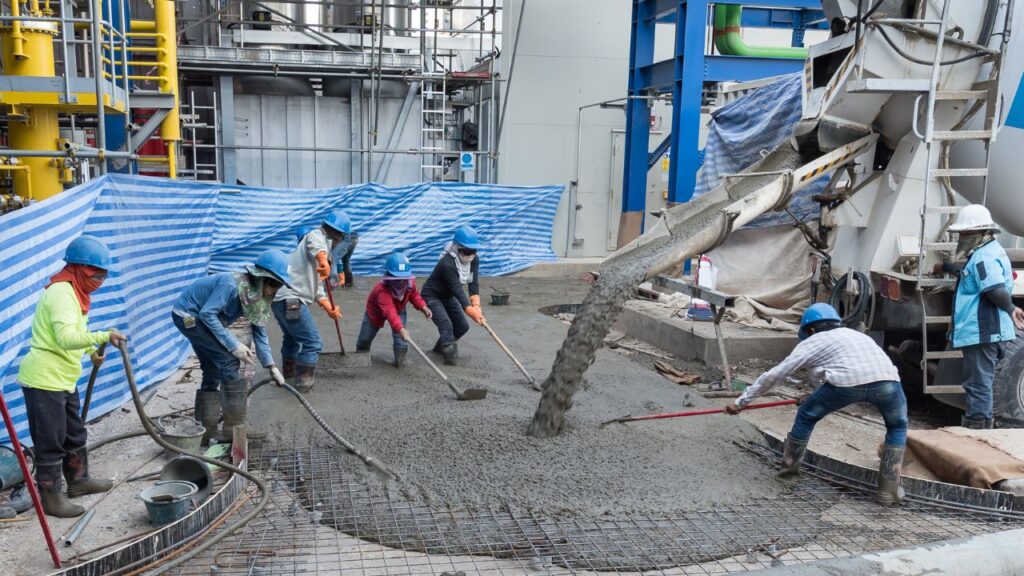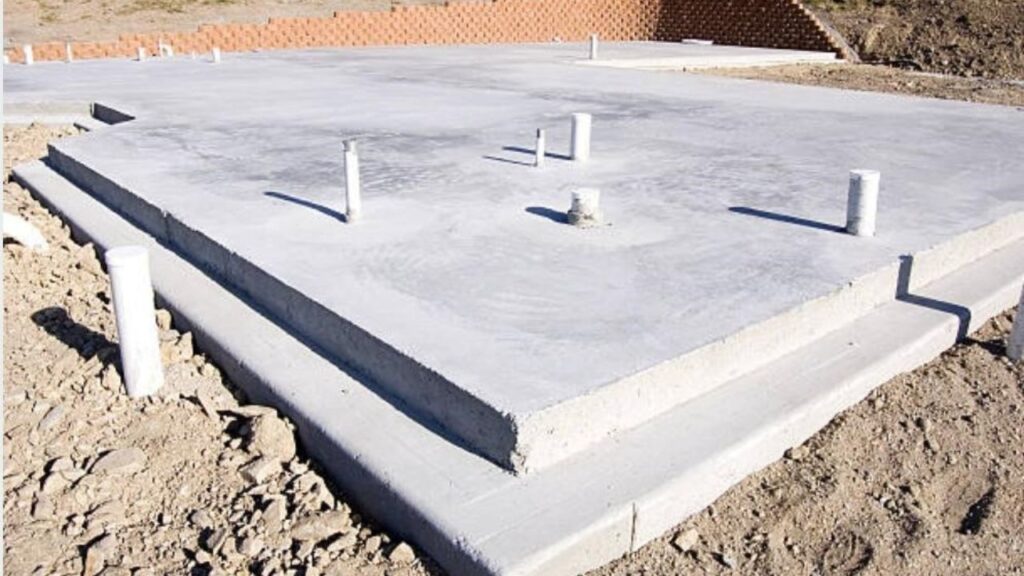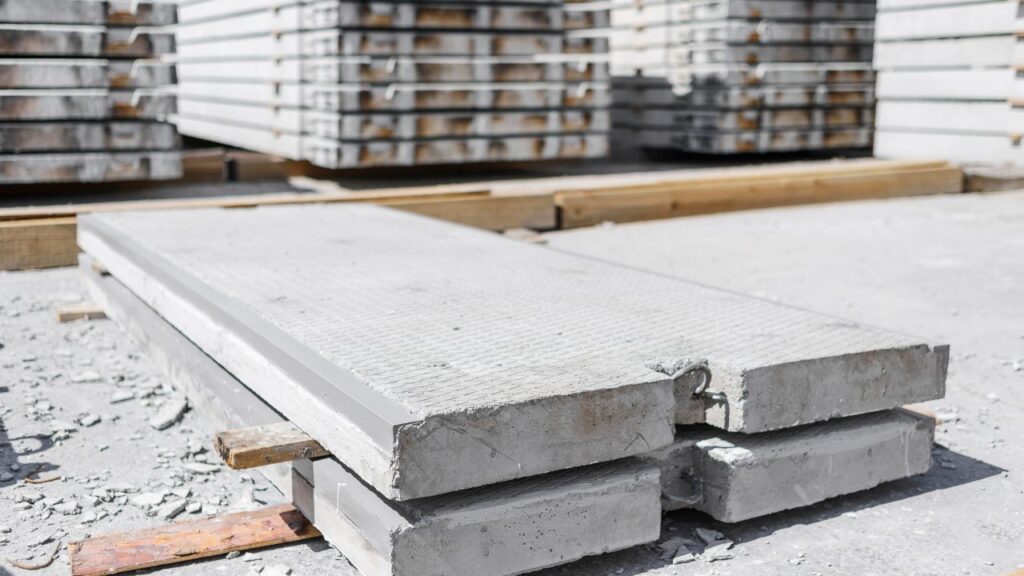Concrete Cost Estimator
Consult our experts for a concrete cost estimate tailored to your project. Make informed decisions and budget effectively with our assistance.

Estimating the cost of a concrete slab is a critical step in any construction project. The total expense depends on various factors such as the size of the slab, the type and quality of concrete used, site preparation requirements, the thickness of the slab, and the need for reinforcement. Additionally, costs can be influenced by labor rates, equipment rental, and any extra expenses like permits and inspections. It’s essential to calculate these costs accurately to avoid budget overruns and ensure the project’s success. Whether you’re planning a small residential slab or a larger commercial one, understanding the intricacies of concrete slab cost estimation will help you create a budget that aligns with your project’s needs while also providing a strong and durable foundation for your structure.

Before delving into the cost estimation, let’s get familiar with what a concrete slab is and its significance.
A concrete slab is a fundamental component in construction, serving as the horizontal base or foundation for a wide range of structures, from homes and commercial buildings to roads and driveways. It is essentially a flat, rectangular surface made of concrete, a mixture of cement, aggregates (such as sand and gravel), and water. The concrete mixture is poured and cured to create a solid, durable platform that supports the weight of the entire structure. Concrete slabs are renowned for their stability and longevity, making them a preferred choice in the construction industry. They offer a level and sturdy surface on which buildings can stand, ensuring structural integrity and longevity. Whether you’re planning a residential project or a large-scale commercial development, understanding the role and characteristics of concrete slabs is essential for a successful construction endeavor.
Estimating the cost of a concrete slab involves a careful consideration of several key factors, each of which can significantly influence the overall expenses of your project.
The cost of site preparation is a pivotal factor in your budget calculations. This phase encompasses a range of essential tasks, such as clearing debris, grading the land to ensure proper drainage, and, in some cases, excavating the area to create a level foundation. The extent of site preparation required can vary widely depending on the condition of the land and its suitability for construction. If your site is uneven, has poor drainage, or requires substantial clearing, these factors will increase the associated costs. Therefore, it’s vital to assess the state of your construction site accurately and plan your budget accordingly to accommodate any necessary site preparation expenses. Additionally, investing in thorough site preparation ensures the long-term stability and durability of your concrete slab.
Concrete Cost Estimator
Consult our experts for a concrete cost estimate tailored to your project. Make informed decisions and budget effectively with our assistance.

The choice of concrete materials is another critical determinant of your project’s cost. Standard concrete mixes are generally cost-effective and suitable for most applications. However, for specialized projects that demand specific properties such as high strength, durability, or rapid setting, you may opt for specialty concrete mixes. It’s important to note that the quantity of concrete required for your project also has a direct impact on expenses. Larger slabs or those with increased thickness will naturally demand more concrete, which adds to the overall material costs. Collaborating closely with your contractor is crucial to select the right concrete type and quantity that aligns precisely with your project’s specific needs while staying within your budget. This careful selection ensures the structural integrity and longevity of your concrete slab.
Skilled labor is an indispensable component of a successful concrete slab installation. Labor costs can vary significantly based on several factors, including the complexity of the project and the region where the construction is taking place. Complex designs or projects involving intricate finishing work may necessitate a higher level of expertise among the workforce, potentially increasing labor expenses. Moreover, labor rates can differ substantially from one geographical area to another, with metropolitan areas often having higher wages. To ensure accurate budgeting, it’s advisable to obtain multiple quotes from reputable contractors in your region and factor in labor costs accordingly. This comprehensive approach allows you to plan for the skilled workforce required to execute your concrete slab project effectively, ensuring precision and quality in the construction process.
Calculating the required concrete quantity is a crucial step in planning your project. To do this, you need to take into account the dimensions of the slab, which include its length, width, and depth. Utilizing online concrete calculators can be a valuable tool in precisely determining the amount of concrete needed for your project. These calculators streamline the process, ensuring that you order the right quantity of concrete to complete your project efficiently and avoid unnecessary expenses.

Concrete slabs are versatile and adaptable, with various types tailored to meet specific construction needs and site conditions. A thorough understanding of these different types is essential when planning your construction project to ensure you select the most suitable option.
Monolithic slabs, often referred to as slab-on-grade, are characterized by a single, thick layer of concrete that serves as both the foundation and the floor of a structure. These slabs are highly cost-efficient and particularly well-suited for regions with stable soil conditions. Their construction is relatively straightforward, making them an ideal choice for residential buildings and light commercial structures. Monolithic slabs offer both durability and simplicity, making them a popular and budget-friendly option for a wide range of construction projects.
Floating slabs are specifically designed for areas with shifting or unstable soil conditions. These slabs are engineered to “float” on the surface of the ground, allowing them to move independently of the soil beneath. This design minimizes the risk of cracks or damage caused by soil settlement or expansion, making floating slabs an excellent choice for regions prone to soil movement. They are commonly used in the construction of structures such as garages, sheds, and workshops, where maintaining structural integrity despite changing soil conditions is crucial. The unique construction method of floating slabs provides stability while accommodating soil variations, ensuring the slab’s longevity.
T-shaped slabs are notable for their thicker edges, which provide additional support and reinforcement. This design makes them well-suited for larger and more substantial structures, including multi-story buildings and industrial facilities. The increased thickness at the edges of the slab helps distribute weight and load-bearing capacity evenly across the entire surface, ensuring structural integrity and stability. T-shaped slabs are often chosen for projects where heavy equipment, machinery, or significant loads will be placed on the surface. Their robust design and exceptional load-bearing capabilities make them a reliable choice for demanding applications where stability and long-term durability are paramount considerations.
When estimating the total cost of your concrete slab project, it’s crucial to account for various additional expenses that can arise based on your project’s specific needs and desired outcomes. These additional costs go beyond the basics of concrete materials and labor and can significantly impact the overall budget.
Reinforcement materials play a pivotal role in enhancing the strength and durability of your concrete slab. Depending on the intended use and load-bearing requirements of the structure, you may need to incorporate reinforcement elements, such as rebar (reinforcing steel bars) or wire mesh, into the concrete mixture. While the inclusion of reinforcement does result in an increase in the overall cost of your project, it represents a valuable investment in the long-term stability and structural integrity of your slab. Reinforcement serves to minimize the risk of cracking, enhance the slab’s ability to withstand heavy loads, and improve its resilience to environmental stresses, such as temperature fluctuations and soil movement. When considering reinforcement options, it’s essential to collaborate closely with your contractor, who can assess your project’s specific requirements and help you determine the most suitable and cost-effective solution. This collaborative approach ensures that the chosen reinforcement method aligns perfectly with your project’s needs, ensuring both durability and budget efficiency.
The finishing touches applied to your concrete slab can significantly impact not only its aesthetics but also its functionality and longevity. While these finishing options do come at an additional cost, they offer substantial benefits in terms of visual appeal and overall durability. Two popular finishing techniques are commonly employed to enhance concrete slabs:
When it comes to concrete slab installation, the choice between embarking on a do-it-yourself (DIY) project and hiring experienced professionals is a critical decision that can significantly influence both costs and outcomes. Opting for a DIY approach may seem tempting as it can save on labor expenses, but it comes with its set of challenges and potential pitfalls. Concrete work demands precision and knowledge of various factors, including site preparation, concrete mixing, and finishing techniques. In contrast, professional installers bring a wealth of expertise to the table, ensuring that the project is executed efficiently and to the highest quality standards.

They are equipped to handle any unexpected issues that may arise during the installation process, ultimately delivering a structurally sound and aesthetically pleasing concrete slab. Therefore, the choice between DIY and professional installation should be carefully considered, weighing cost savings against the assurance of a well-executed project that stands the test of time.
Concrete slab costs can vary significantly. Here’s a rough estimate:
Here’s a rough estimate for a 200-square-foot concrete slab:
Estimating the cost of a concrete slab involves considering various factors, including the size of the slab, the type of concrete, site preparation, reinforcement, labor costs, finishing options, and any additional expenses like permits and inspections. Each of these factors plays a role in determining the overall project cost.
Site preparation is a critical factor in cost estimation. It involves tasks like debris clearance, land grading, and excavation if needed. The extent of site preparation required can significantly impact expenses, so it’s essential to assess your construction site accurately.
The type and quality of concrete you choose, along with the quantity needed, directly influence costs. Standard concrete is cost-effective, but specialized mixes or larger slabs will increase material expenses. Collaborating with your contractor is key to selecting the right concrete type.
Skilled labor is crucial for successful concrete slab installation. Labor costs can vary based on project complexity and location. Complex designs or finishing work may require higher labor expenses. Obtaining multiple quotes from reputable contractors helps ensure accurate budgeting.
Yes, additional costs can include reinforcement materials like rebar or wire mesh, as well as finishing touches like stamping or staining for aesthetic appeal. These options enhance durability and aesthetics but come at an extra expense.
The decision between DIY and professional installation depends on factors like your level of expertise, the project’s complexity, and your budget. While DIY may save on labor costs, professionals bring expertise to ensure quality and structural integrity.
Concrete slab costs can vary widely. A small residential slab might range from $1,200 to $3,500, while larger residential slabs may cost between $3,500 and $6,000. Commercial slabs can range from $6,000 to $15,000 or more, depending on size and complexity.
Certainly! A rough estimate for a 200-square-foot concrete slab might include site preparation costs of around $800, concrete materials at $1,000, labor costs totaling approximately $1,500, and additional expenses of about $600, resulting in a total estimated cost of $3,900.
Estimating the cost of a concrete slab is a critical step in any construction project. The total expense depends on various factors such as the size of the slab, the type and quality of concrete used, site preparation requirements, the thickness of the slab, and the need for reinforcement. Additionally, costs can be influenced by labor rates, equipment rental, and any extra expenses like permits and inspections. It’s essential to calculate these costs accurately to avoid budget overruns and ensure the project’s success. Whether you’re planning a small residential slab or a larger commercial one, understanding the intricacies of concrete slab cost estimation will help you create a budget that aligns with your project’s needs while also providing a strong and durable foundation for your structure. Your concrete slab is not just a foundation; it’s the bedrock of your construction project, and careful planning ensures a solid future for your building.
Here I am going to share some steps to get your concrete cost estimate report.
You can send us your plan on info@estimatorflorida.com
Before starting your project, we send you a quote for your service. That quote will have detailed information about your project. Here you will get information about the size, difficulty, complexity and bid date when determining pricing.
We do concrete estimating and prepare a detailed report for your project. At last, you finalize the report and finish the project.



561-530-2845
info@estimatorflorida.com
Address
5245 Wiles Rd Apt 3-102 St. Pete Beach, FL 33073 United States
561-530-2845
info@estimatorflorida.com
Address
5245 Wiles Rd Apt 3-102 St. Pete Beach, FL 33073 United States
All copyright © Reserved | Designed By V Marketing Media | Disclaimer